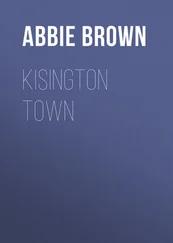Eric Brown - Kéthani
Здесь есть возможность читать онлайн «Eric Brown - Kéthani» весь текст электронной книги совершенно бесплатно (целиком полную версию без сокращений). В некоторых случаях можно слушать аудио, скачать через торрент в формате fb2 и присутствует краткое содержание. Город: Oxford, Год выпуска: 2009, ISBN: 2009, Издательство: Solaris, Жанр: Фантастика и фэнтези, на английском языке. Описание произведения, (предисловие) а так же отзывы посетителей доступны на портале библиотеки ЛибКат.
- Название:Kéthani
- Автор:
- Издательство:Solaris
- Жанр:
- Год:2009
- Город:Oxford
- ISBN:9781844167128
- Рейтинг книги:5 / 5. Голосов: 1
-
Избранное:Добавить в избранное
- Отзывы:
-
Ваша оценка:
- 100
- 1
- 2
- 3
- 4
- 5
Kéthani: краткое содержание, описание и аннотация
Предлагаем к чтению аннотацию, описание, краткое содержание или предисловие (зависит от того, что написал сам автор книги «Kéthani»). Если вы не нашли необходимую информацию о книге — напишите в комментариях, мы постараемся отыскать её.
Kéthani — читать онлайн бесплатно полную книгу (весь текст) целиком
Ниже представлен текст книги, разбитый по страницам. Система сохранения места последней прочитанной страницы, позволяет с удобством читать онлайн бесплатно книгу «Kéthani», без необходимости каждый раз заново искать на чём Вы остановились. Поставьте закладку, и сможете в любой момент перейти на страницу, на которой закончили чтение.
Интервал:
Закладка:
Another thing I liked about the Tuesday night group was that they never made digs about the fact that I’d never had a girlfriend since they’d known me—since my early twenties, if the truth be known.
I’d long ago reconciled myself to a life mending dry-stone walls, reading the classics, and sharing numerous pints with friends at the Fleece.
And I’d never told anyone that I blamed my father. Some wounds are too repulsive to reveal.
It was midnight by the time I made my way up the hill and across the moors to the cottage. I recall stopping once to gaze at the Onward Station, towering beside the reservoir a mile away. It coruscated in the light of the full moon like a stalagmite of ice.
As I stared, a beam of energy, blindingly white, arced through the night sky towards the orbiting Kéthani starship, and the sight, I must admit, frightened me.
“I tried repairing it myself,” Elisabeth said, “but as you can see I went a bit wrong.”
“It’s like a jigsaw puzzle,” I said. “It’s just a matter of finding the right piece and fitting it in.”
It was one of those rare, brilliantly sunny November days. There was no wind, and the snow reflected the sunlight with a twenty-four carat dazzle.
I dropped the last stone into place, rocked it home, and then stood back and admired the repair.
“Thirty minutes,” Elisabeth said. “You make it look so easy.”
I smiled. “Matter of fact, I built this wall originally, twelve years ago.”
“You’ve been in the business that long?”
We chatted. Elisabeth wore snow boots and a padded parka with a fur-lined hood that that made her look like an Eskimo. She stamped her feet. “Look, it’s bitter out here. Would you like a coffee?”
“Love one.”
Her house was a converted barn on the edge of the moor, on the opposite side of the village to my father’s cottage where I lived. Inside it was luxurious: deep pile carpets, a lot of low beams and brass. The spacious kitchen was heated by an Aga.
I stood on the doormat, conscious of my boots.
“Just wipe them and come on in,” she said, laughing. “I’m not house-proud, unlike my mother.”
I sat at the kitchen table and glanced through the door to a room full of books. I pointed. “Like reading?”
“I love books,” she said, handing me a big mug of real coffee. “I teach English, and the miracle is that it hasn’t put me off reading. You?” She leaned against the Aga, holding her cup in both hands.
We talked about books for a while, and I think she was surprised at my knowledge.
Once I saw her glance at my left temple, where the implant should have been. I felt that she wanted to comment, to question me, but couldn’t find a polite way of going about it.
The more I looked at her, and the more we talked, the more I realised that I found her attractive. She was short, and a little overweight, and her hair was greying, but her smile filled me with joy.
Romantic and inexperienced as I was, I extrapolated fantasies from this meeting, mapped the future.
“How often do you visit your mother?” I asked, to fill a conversational lull.
“Four times a week. Monday, Wednesday, Friday, and Sunday.”
I hesitated. “How long has she been ill?”
She blew. “Oh… when has she ever been well! She had her first stroke around ten years ago, not long after we moved here. I’ve been working part-time and looking after her ever since. She’s averaged about… oh, a stroke every three years since. The doctors say it’s a miracle she’s still with us.”
She hesitated, then said, “Then the Kéthani came, and offered us the implants… and I thought all my prayers had been answered.”
I avoided her eyes.
Elisabeth stared into her cup. “She was a very intelligent woman, a member of the old Labour Party before the Blair sell-out. She knew her mind. She wanted nothing to do with afterlife, as she called it.”
“She was suspicious of the Kéthani?”
“A little, I suppose. Weren’t we all, in the beginning? But it was more than that. I think she foresaw humanity becoming complacent, apathetic with this life when the stars beckoned.”
“Some people would say she was right.”
A silence developed. She stared at me. “Is that the reason you…?”
There were as many reasons for not having the implant, I was sure, as there were individuals who had decided to go without. Religious, philosophical, moral… I gave Elisabeth a version of the truth.
Not looking her in the eye, but staring into my empty cup, I said, “I decided not to have the implant, at first, because I was suspicious. I thought I’d wait; see how it went with everyone who did have it. A few years passed… It seemed fine. The returnees came back fitter, healthier, younger. Those that went among the stars later, they recounted their experiences. It was as the Kéthani said. We had nothing to fear.” I looked up quickly to see how she was taking it.
She was squinting at me. She shrugged. “So, why didn’t you…?”
“By that time,” I said, “I’d come to realise something. Living on the edge of death, staring it in the face, made life all the more worth living. I’d be alone, on some outlying farm somewhere, and I’d be at one with the elements… and, I don’t know, I came to appreciate being alive.”
Bullshit, I thought. It was the line I’d used many a time in the past, and though it contained an element of truth, it was not the real reason.
Elisabeth was intelligent; I think she saw through my words, realised that I was hiding something, and I must admit that I felt guilty about lying to her.
I thanked her for the coffee and made to leave.
“How much for the work?” she said, gesturing through the window at the repaired wall.
I hesitated. I almost asked her if she would like to go for a meal, but stopped myself just in time. I told myself that it would seem crass, as if she had to accept the invitation in payment. In fact, the coward in me shied away from escalating the terms of our relationship.
“Call it fifty,” I said.
She gave me a fifty euro note and I hurried from the house, part of me feeling that I had escaped, while another part was cursing my fear and inadequacy.
I found myself, after that, visiting my father on Monday, Wednesday, Friday, and Sunday. Sunny View seemed a suitably neutral venue in which to meet and talk to Elisabeth Carstairs.
I even found myself looking forward to the visits.
About two weeks after I repaired her wall, I was sitting in the lounge with my father. It was four o’clock and we were alone. Around four-thirty Elisabeth would emerge from her mother’s room and we would have coffee in the library.
I was especially nervous today because I’d decided to ask her if she would like to come for a meal the following day, a Thursday. I’d heard about a good Indonesian place in Bradley.
I’d come to realise that I liked Elisabeth Carstairs for who she was, her essential character, rather than for what she might represent: a woman willing to show me friendship, affection, and maybe even more.
We had a lot in common, shared a love of books, films, and even a similar sense of humour. Moreover, I saw in Elisabeth a fundamental human decency, perhaps born out of hardship, that I detected in few other people.
“Who’re you, then?”
“Ben,” I said absently, my thoughts miles away.
He regarded me for about a minute, then said, “You always were bloody useless!”
I stared at him. He had moments of lucidity: for a second, he was back to his old self, but his comment failed to hurt. I’d heard it often before, when the sentiment had been backed by an ability to be brutal.
“Dry-stone walls!” he spat.
Читать дальшеИнтервал:
Закладка:
Похожие книги на «Kéthani»
Представляем Вашему вниманию похожие книги на «Kéthani» списком для выбора. Мы отобрали схожую по названию и смыслу литературу в надежде предоставить читателям больше вариантов отыскать новые, интересные, ещё непрочитанные произведения.
Обсуждение, отзывы о книге «Kéthani» и просто собственные мнения читателей. Оставьте ваши комментарии, напишите, что Вы думаете о произведении, его смысле или главных героях. Укажите что конкретно понравилось, а что нет, и почему Вы так считаете.












